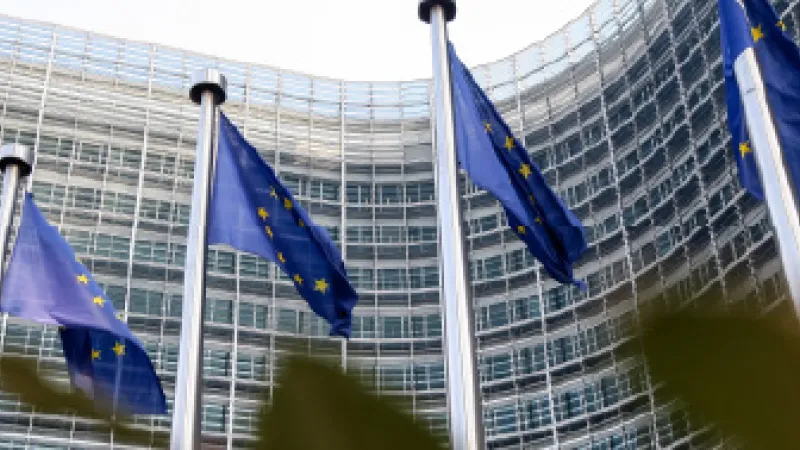Critical Raw Materials and EU Antitrust, Cont’d.
August 11, 2025
The European Commission is exploring ways European Union (EU) competition policy can support the security and resilience of European supply chains, particularly in relation to critical raw materials (CRMs). The Commission is focused specifically on 14 CRMs -- aluminium, beryllium, cobalt, copper, gallium, germanium, graphite, lithium, manganese, nickel, platinum, rare earth elements (REEs), titanium, and tungsten – designated under the EU’s Critical Raw Materials Act (CRMA).
The Commission is now conducting a targeted consultation until September 30, 2025 on the antitrust treatment of specific types of cooperation to improve European supply chains. This initiative aims to deliver on Executive Vice-President Ribera’s mission to develop “new approach to competition policy” “support[ing] European companies to innovate, compete and lead world-wide and contribut[ing] to our wider objectives on competitiveness and sustainability, social fairness and security.”
Background: April call for input
The targeted consultation is the second step in a multi-phase process that began with a more general call for input on how competition law can support industry cooperation to procure, recycle and re-use CRMs, following through on the February 2025 commitment in the Communication on the Clean Industrial Deal. This call for input is discussed in more detail in Critical Raw Materials and EU Competition Law | Kluwer Competition Law Blog.
The call for input attracted 44 responses. The responses focused on (i) access to finance, (ii) administrative and regulatory issues, (iii) joint purchasing (including joint offtake), and (iv) applicable competition rules. Several respondents raised concerns about Europe’s overdependence on single supply sources outside the EU, which exposes European industry to sudden supply chain disruptions, in turn deterring investment in European initiatives at the refining, processing, and recycling stages. For example, European smelters and refiners are heavily dependent on imports of CRMs and cannot diversify their sources owing to the concentration of market power in a few suppliers, exacerbated by differences in the grades and technical specifications of the CRMs they purchase.
Downstream, respondents pointed to difficulties in developing secondary markets, including insufficient scrap volumes and (particularly for battery manufacturing and recycling) difficulties in attracting sufficient investment to scale operations and maintain recyclable materials in Europe. The recycling sector could benefit from collaboration, e.g., to develop a circular economy optimised for the reuse or recycling of CRMs in Europe. (This objective may be targeted by the upcoming Circular Economy Act, currently the subject of another Commission consultation).
Respondents noted that the usefulness of joint purchasing agreements varies depending on the CRM. On the one hand, joint purchasing may not be feasible where purchasers need CRMs with different grades and specifications, or necessary where CRMs are already traded transparently, e.g., on the London Metals Exchange. On the other hand, joint offtake agreements could help create sufficient demand to enable offtakers to negotiate better prices, terms and access rights, as well as de-risking financing for new mining projects or processing facilities.
Several respondents – especially in the battery industry -- requested guidance on the application of EU competition rules to cooperation across the value chain or across sectors. Examples could include horizontal cooperation in developing recycling facilities or R&D or vertical cooperation to create circular material loops for the reuse, repair, remanufacturing or recycling of products using CRMs. Respondents also asked the Commission to fill gaps in its published guidance on efficiencies. These include the Commission’s horizontal guidelines’ (HGL’s) treatment of early-stage agreements (e.g., joint feasibility studies, pilot projects and the creation and testing of new technologies), where the environmental benefits are long-term or system-wide, but not immediately quantifiable, as well as conditions in the R&D block exemption (especially as regards the need to exchange sensitive commercial data).
Targeted consultation
The Commission’s new, targeted consultation seeks additional input on specific forms of cooperation. These include agreements on joint offtake, sustainability or recycling; joint storage for CRMs or related products; joint transportation (e.g., shared logistics for CRMs); joint R&D (focused on CRM technologies, extraction methods, or supply chain optimisation); and mining (e.g., for joint processing/refining of CRMs). "Related products" includes storable materials such as processed forms (e.g., metal oxides or salts), CRM-containing components (like battery cells or magnets), and recyclable waste or scrap materials that retain CRM value and can be stored for future use or processing.
For each type of cooperation, the Commission asks whether respondents are currently using or planning to use such agreements, and if so to provide details. The Commission also asks if EU or national competition laws create barriers to companies entering into such agreements.
More generally, the Commission asks whether other forms of cooperation with companies at the same or different levels of the value chain could strengthen European supply chains. The Commission also asks whether there are specific projects for which respondents would like to receive informal guidance, as opposed to general guidance such as the HGL.
Next steps
Following the targeted consultation, the Commission plans to organise a workshop in the fourth quarter of 2025. The timeline also refers to publication of a policy brief or other form of guidance to the industry. Another form of guidance, referenced in the targeted consultation, could be informal guidance under the Commission’s 2022 notice on informal guidance relating to novel or unresolved questions.
The informal guidance notice responded to calls during the COVID-19 pandemic for companies to be able to discuss the antitrust treatment of proposed cooperations. However, the Commission did not initially follow through on the notice’s promise. The Commission’s practice seems to be changing under EVP Ribera; recently, the Commission issued guidance on an agreement to reduce CO2 emissions in European ports and another on a licensing negotiation group in the automotive sector.
Further guidance on the EU antitrust treatment of cooperation agreements in the procurement and recycling of CRMs is indeed needed to fill gaps in the existing guidance. Some gaps in the HGL and R&D block exemption are noted above. More generally, there is a disconnect between the HGL and the Commission’s guidelines on vertical restraints (VGL). While the HGL include an entire chapter on sustainability agreements, the VGL mention sustainability considerations only in passing. Even the HGL currently provide little concrete guidance on the specific agreement types addressed in the targeted consultation. For example, recycling features mainly in an example of cooperation among recyclers of mobile phones treated as an illegal buyer cartel. More broadly, neither the HGL nor the VGL address agreements across supply chains and sectors.
EU governmental initiatives to improve the security and resilience of European CRM supply chains, such as the CRMA, will require private sector participation, often by multiple companies working across value chains. The Commission’s request for input on companies’ needs and challenges, and its willingness to provide concrete guidance, will play an important role in the coming years. This initiative seems to be paying off; in parallel with the consultation process, multiple companies are in bilateral talks with the Commission on the assessment of early-stage projects. Further informal guidance can be expected as soon as late 2025 and into 2026.
You may also like








